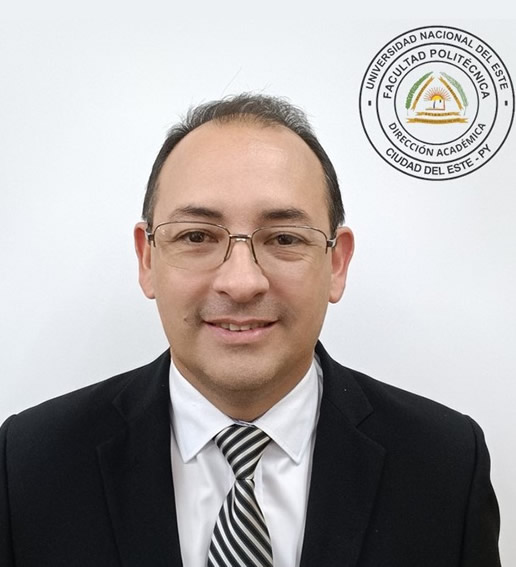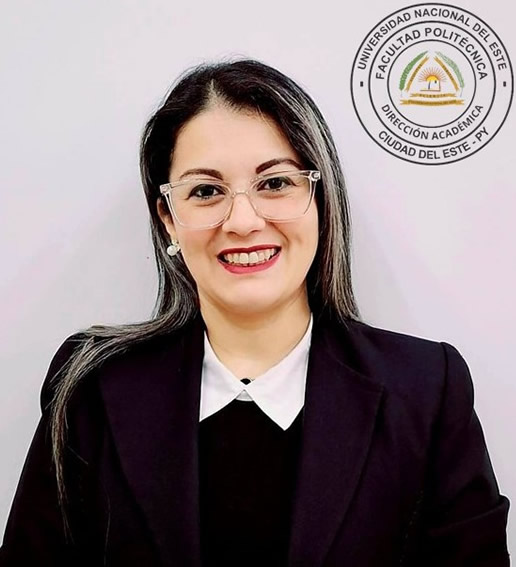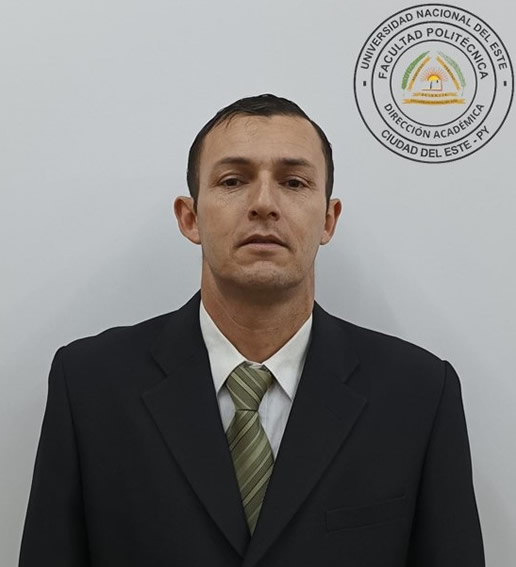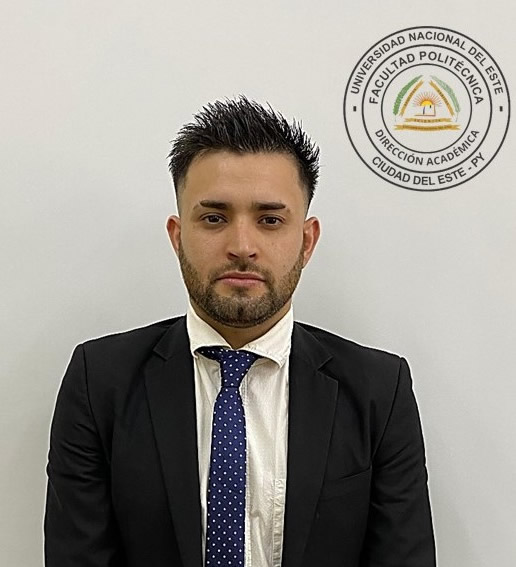Ingeniería Eléctrica

2017 CURRICULUM
Duration: 5 years
Mode: Undergraduate degree
Title: Electrical Engineer
Academic Unit: Faculty of Engineering
CAREER MISSION
Contribute to the development of the country through the training of competent Electrical Engineers who apply their knowledge in solving national sector problems, for the welfare and progressive improvement of the quality of life, and respond to socio-environmental challenges through research and extension.
CAREER VISION
To establish itself as a consolidated career and multidisciplinary training proposal of the Faculty of Engineering - UNE, which constitutes one of the best educational options in the region both at the Undergraduate and Postgraduate level.
CAREER OBJECTIVE
To train engineers with solid knowledge in the areas of electricity, electronics, and informatics as fundamental tools for the management, organization, supervision, and administration of companies in the electrical sector, capable of working in multidisciplinary teams, with inclusive equity, promoting socio-environmental preservation, projecting appropriate solutions through design, formulation, management, or participation in projects for power systems and industrial areas.
PROFESSIONAL DEFINITION - PROFESSIONAL PROFILE
The Electrical Engineer is a university professional with solid training in technology and management, capable of leading, designing, developing, and optimizing electrical projects. He/she is an entrepreneur, autonomous, and innovative in his/her professional activity, staying permanently updated. He/she can integrate multidisciplinary work teams, efficiently solving problems, using information and communication technologies, considering physical, economic, environmental, human, ethical, political, legal, and cultural constraints.
PROFESSIONAL DEFINITION - GRADUATE PROFILE
The Electrical Engineer with emphasis in Power Systems is able to plan, design, adapt, execute and evaluate, as well as to project devices and procedures to transform different types of energy into electricity and its transmission to consumption centers. He/she is also capable of implementing automatic controls and designing and implementing safety systems at work.
The Electrical Engineer with emphasis in Industrial Systems is able to evaluate, plan, design, and adapt electrical installations in residences or companies; study and carry out industrial applications of electronic systems and adapt electrical machines to production processes. He/she is also capable of implementing automatic controls and designing and implementing safety systems at work.
OCCUPATIONAL FIELD
Electrical Engineer with Emphasis on Power Systems.
Designer: able to design devices and procedures to transform different types of energy into electricity and transmit it to consumer centers.
Manager: qualified to manage power generation, transmission, distribution, and electric energy application or utilization plants.
Supervisor: competent in planning, designing, adapting, executing, and evaluating power systems.
Researcher: prepared to work in teaching and research centers.
Director: responsible for the planning, implementation, and administration of power electrical systems.
Consultant: capable of evaluating, planning, guiding, and finding the best solutions in power electrical systems.
Teacher: qualified to teach in educational centers.
Electrical Engineer with Emphasis on Industrial Systems.
Designer: able to evaluate, plan, design, and adapt medium and low voltage electrical installations in industries.
Manager: prepared to analyze, study, and perform industrial applications of electronic systems and adapt electric machines to production processes.
Supervisor: capable of implementing automatic controls and designing and executing safety systems in the workplace.
Researcher: prepared to work in research centers.
Director: responsible for the planning, implementation, and administration of industrial electrical systems.
Consultant: capable of evaluating, planning, guiding, and finding the best solutions in industrial electrical systems.
Teacher: qualified to teach in educational centers.
The graduate can work in:
- Electric power production.
- Electric power transportation.
- Analysis of electrical systems.
- Control, protection, and measurement of electrical systems.
- Electric power consumption and commercialization.
- University research and teaching.
- Electrical installation projects.
GENERIC AND SPECIFIC COMPETENCIES
Generic Competencies
- Acquire a solid knowledge of mathematics and physics.
- Have an entrepreneurial, creative, and innovative spirit in activities inherent to the profession.
- Possess concentration, imagination, proactivity, and logical reasoning skills.
- Acquire basic knowledge of computer science and technical English.
- Possess research skills, self-learning, and permanent professional updating capacity.
- Demonstrate critical and self-critical ability.
- Communicate in at least one of the official languages of the country.
- Use information and communication technologies.
- Work in multidisciplinary teams.
- Promote environmental preservation.
- Formulate, manage, or participate in projects.
- Demonstrate commitment to quality.
- Act in accordance with the principles of prevention, hygiene, and work safety.
- Acquire knowledge about technical criteria, construction, and norms necessary for the correct distribution of electrical energy, for its operation and assembly.
- Acquire the fundamentals of power system dynamics.
- Apply industrial automation engineering to highly productive plants.
- Apply knowledge of communication networks for the industrial environment.
- Design, adapt, execute and evaluate, as well as project devices and procedures to transform different types of energy into electricity.
- Evaluate, plan, design, and adapt electrical installations in homes or businesses.
- Study and carry out industrial applications of electronic systems and adapt electric machines to production processes.
Specific Skills
- Apply knowledge of Mathematics.
- Apply knowledge of Physical Sciences.
- Analyze, abstract, formulate, and solve computer problems related to the electricity field.
- Understand and master the basic concepts of the general laws of circuit theory and apply them to solve engineering problems.
- Ability to spatial abstraction and graphic representation.
- Plan, supervise, coordinate, guide, execute, and verify electrical systems.
- Advise companies on technical matters.
- Perform technical-economic feasibility studies of electrical projects.
- Use modern management techniques in business.
- Implement new systems to increase productivity efficiently.
- Coordinate teams for the assembly, operation, and maintenance of electrical systems.
- Adopt, administer, and generate technological changes in a company.
- Knowledge of the regulatory and legal framework inherent to their specialty.
- Ability to dimension and evaluate alternative electrical solutions.
- Analyze, develop, execute, and interpret test results carried out in their area of expertise.
- Knowledge of machine control, electric drives, and their applications.
- Ability to model and simulate electrical engineering systems and processes.
- Ability to calculate and design high-voltage electrical installations.
- Ability to calculate and design electrical lines.
- Knowledge of power electrical systems and their applications.
- Ability to apply mathematical and computational tools in the dynamic simulation of power systems.
- Ability to plan, execute, and supervise industrial electrical installations.
- Knowledge of technical specifications and regulations for the installation of medium-voltage distribution lines.
- Ability to analyze and apply automation and control engineering.
- Knowledge of the fundamentals of energy quality and its applications.
- Knowledge of the principles of automatic regulation and its application to industrial automation.
- Design and apply controllers for dynamic systems to discrete events based on models.
- Analyze and mitigate supply defects in electrical distribution networks.
- Apply principles of pneumatics and hydraulics in the operation of machines and industrial processes.
- Interpret the fundamentals of computer network design.
- Develop a holistic view of industrial processes and the challenges involved.
- Apply principles of electronics to the measurement of quantities in industrial processes.
- Apply networks considering process industrial requirements.
- Propose robotic manipulators according to specified functions.
- Apply good product engineering practices to organize the project process of an enterprise.
ENTRANCE REQUIREMENTS
Meet the requirements established by the faculty regulations.
GRADUATION REQUIREMENTS
- To graduate from the program, the student must pass all the courses in the study plan and have completed the total workload of 4,370 hours.
- Have completed the minimum workload of University Extension Activities of 50 hours.
- Have completed the minimum workload of Supervised Professional Internship of 240 hours and have presented a written report on it that must be approved.
- PRESENT AND DEFEND A FINAL DEGREE PROJECT that must be approved by an examining board.
ELECTRICAL ENGINEERING COORDINATION TEAM
Ing. Joel Ferreira
Coordinador de la Carrera de Ingeniería Eléctrica
ing.electrica@fpune.edu.py
Int. 219
Lic. Lalis Carolina Leiva Franco
Asistente de la Carrera de Ingeniería Eléctrica
ing.electrica@fpune.edu.py
Int. 238
Prof. Derlis Villar
Asistente Académico
Int. 238
Alexander Paredes
Asistente Académico
Int. 238




